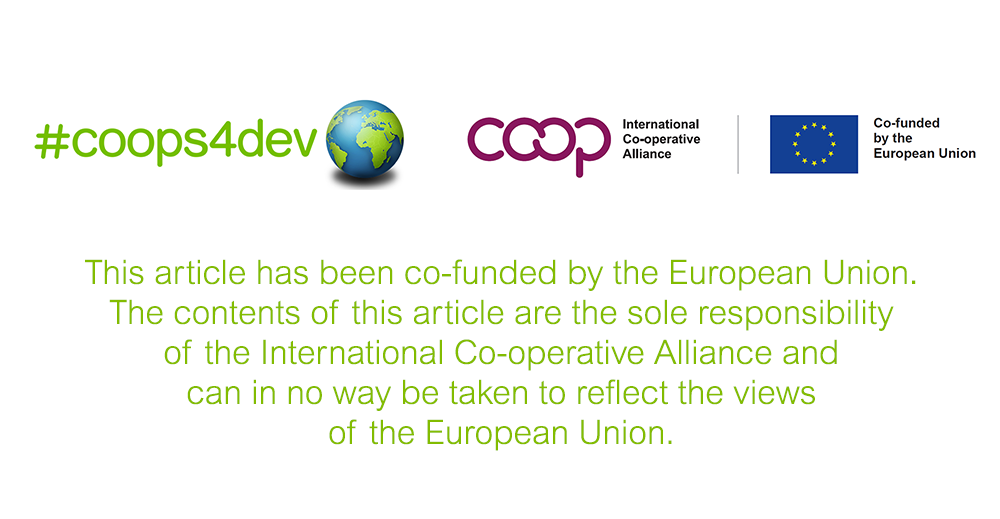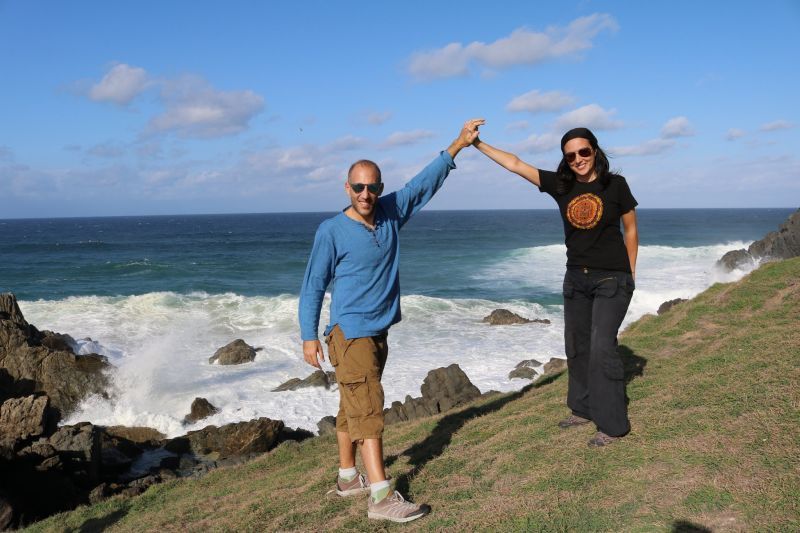
With the support of the ICA-EU program #coops4dev?, the researcher Sara Vicari and the filmmaker Andrea Mancori began a trip around the world to visit and document some of the most inspiring cooperative examples from different economic sectors in a series of short films. This fascinating project is called aroundtheworld.coop.
Sara Vicari and Andrea Mancori will take part in the Coop Cinema of our Global Conference "Cooperatives for development" on 15 October, along with several speakers, and some of their documentaries will be showcased at this session.
You started aroundtheworld.coop in January 2019. Could you tell us about the background of the project? What does it bring to the cooperative movement? And also, what does this project mean to both of you?
Actually, it all started in January 2018. One day Andrea came back home very inspired, we were going through one of those moments in life when you are aware you need a change, you want to do more for yourself and the society you live in. The news was discouraging. It is in fact under everyone’s nose that the world is going through a very complex phase, characterized by very complex global problems, to which too often people reply with binary and simplistic answers. In many countries, ours included, propaganda has been criminalizing society’s efforts to solve such complex problems in a way that is inspired by the values of solidarity, reciprocity, and generosity. For some people these are all old-fashioned values or, even worst, fake values that do not exist in a society driven only by selfishness and avidity. One example is the attacks against NGOs and cooperatives who try to do their part to find a solution for the humanity who are migrating in search for a better life, here in Europe as well as in the US. Or the attack against any type of collective action to defend the environment and the planet, resulting in many social movement leaders being killed and again, their organizations criminalized. For the propaganda, it is easy to take a story of failure, as in the case of false cooperatives, and consider it as representative of thousands and thousands of successful experiences of collective action worldwide.
However, we know that communities worldwide organize themselves exactly as inspired by those positive values and, through collective action, they found their own solutions to make a change in their territories and society. We also very well know that often cooperatives are part of the answer, providing a way for members to improve their lives and those of their families and communities.
So, we decided to challenge ourselves to do our bit to spread the word that our world is better than the mainstream news and than most of politicians want us to believe. We came up with the idea of combining our respective jobs. You know, Andrea is a video-maker and I have carried out participatory action research with cooperatives for almost 15 years now. So together – we said to ourselves – we could try to contribute to changing the narrative about how communities can find innovative solutions to global problems through collective action. We then decided to volunteer for one year and do it through a thrilling experience: the around the world trip! Luckily the International Cooperative Alliance, and in particular the Coops4dev programme, believed in our dream and supported us to turn this dream into a reality.
What is aroundtheworld.coop for us? It is our creature; our little contribution to bring a bit of light into a historical moment that looks pretty obscure. It is also the beginning of another story of collective action: the story of the two of us and of a group of people that believed in this project and are willing to move forward all together to continue on this path of positive and inspiring story telling.
One of the differentiating aspects of the documentaries is the methodology you use. Could you tell us more about it? How and why did you decide to adopt such a methodology? How can you testify of its effectiveness?
As said, the initial idea of this project was not simply to make some videos about cooperatives. Our videos are not institutional videos. We always make it very clear when we approach a cooperative. Our objective has been to come up with a video that is developed together with cooperative members, where they can have a say about how the story should be told and where they can be the main agents of story telling.
We also wanted that our videos could serve for the larger community of cooperators, citizens, but also trainers, development practitioners and policymakers. That’s why our videos employ a language that enables everyone tto empathetically identify herself/himself at the same time as touching upon hot topics in cooperative development in a simple and easy-going way.
For all these reasons, before we film we engage members in a focus group discussion, to discuss the basis on which we film and build up the story. Filming activities require at least a week, we used to say that we would act as a fly (on the wall); always trying to be as natural and as non-invasive as possible.
When did we realise that this was the right way? It became after the first videos when people reacted by telling us that by watching the video they felt as if they were there with the members. It was the best feedback we could receive!
So, your methodology includes getting to know the cooperators step-by-step. You have met with cooperators from 7 countries so far. Could you tell us about one of the stand-out encounters on this journey?
As of today, 28 August 2019, we are just ending up with our 10th case study in Brazil and are close to engaging with two other remaining ones, before coming back to Rome and then travelling to Kigali for the ICA General Assembly in Rwanda. Time really flies, we are almost at the end of the journey, we can’t believe it! We had many stand-out encounters in this trip, we feel really blessed… we met so many brave people, with very strong personalities and deep souls, with that marvellous light in the eyes, that typical light of people that had the inner strength to change their lives, doing it believing in humanity and collective, and they made it! We met very strong women and men that will mark our lives forever. It is not possible to mention only one person, everywhere we met unforgettable cooperators, and honestly speaking, we have the dream to manage one day to gather all these people in the same place… the positive energy out of that could be explosive!
Could you tell us about one striking example of the power of cooperation that you have documented? How did the coop impact the daily lives of cooperators? What effect did it have on the community?
One day, we were in Sydney, we were at an event with Australian cooperators, displaying some of our videos. During the debate, a person made a comment, basically saying that ok, all right, cooperatives can make a difference in developing countries, but what about developed countries? In his mind, probably a person not very familiar with the movement I must say, in more developed countries coops cannot really make a difference. Just a few days later we were travelling to California to document the Cheese Board Collective, a totally horizontal worker cooperative, with no Board, no president, with 65 members putting in practice the philosophy of equal work for equal pay and authentic participatory decision-making. 65 incredibly empowered workers, enjoying benefits that are impossible to obtain in the US food industry otherwise, and experimenting at the same time with a proper democratic way of working. It is a case of success, being there for 52 years and representing a milestone for the community of Berkeley. This is the story we just finished editing, and we are really in love with it, we got very inspired!
As Michael, one of the Cheese Board members, and also one of the key people that left a mark on our journey, told us: “the most powerful statement is to create the society you want to live in, not just talking about that…” In all the coops we visited we found this same revolutionary spirit of creating the society they wanted to live in, this pragmatic spirit to turn an utopia into a reality. This essence has an incredible transformative power… in Africa, Asia, Oceania, the Americas and in Europe!
We must say, every day we take Michael’s words with us, the light in his eyes, as well as in the eyes of all the other co-operators we met so far, and their terrific experiences of cooperation!
In every journey, there are some unexpected events. Until now, which difficulties did you have to face and how did you overcome them?
Travelling around the world is amazing but it is not easy. As we used to say, it’s a journey made up of many journeys. Proper planning and risk management is essential. We must thank our team, Cécile Berranger, Veronica Boggini, Flavio Luciani, Federico Vicari and Yuri Manuel D’Amore if everything has been running smoothly. The support of ICA global and regional offices as well as the support of local coop movements has also been crucial in this regard. However, as in every trip, we had our moments of difficulties. Sometime our health came down, asking our bodies to take more time to adapt to the new context. Sometime coop managers found it difficult to understand our project and our way of working, making our life more complex instead of easier. Luckily, all this happened only in very isolated cases. How did we manage these situations? Well, to be resilient is a must for a project like this and also to remain calm, and be gentle, with ourselves, among ourselves, and with other people. We learnt to be extremely flexible and readjust our programmes continuously. We also benefitted a lot from our attitude to find the positive side of every situation, and probably our way of being has contributed a lot!
From the 14th to the 17th of October, you will attend the ICA Global Conference ‘Cooperatives for Development’. In your opinion, how are cooperatives essential to sustainable human development?
We would like to try to answer to this question with some lessons learnt during our journey. How are they essential?
Well, coops can:
- Create the opportunity for migrants and local people to work together, at the same time fighting criminal organizations and becoming a driver of inclusive development and decent work, as the experience of “Alice’s home” in Castel Volturno (Italy) has taught us.
- Be a catalyst of cultural change, transforming how society looks at indigenous’ identity, as in the case of Aboriginal artists’ coop in Australia, or women workers’ identity and role, as we learnt in Morocco, but also in Nepal and in Brazil.
- Be the means for communities to get out of conditions of slavery, as happened in the case of Nepal and Brazil.
- Be a driver of responsible investments as in the case of the amazing testimony by the CoproritzNtende in Rwanda, but also by the Cheese Board in California, and the electric cooperatives in Costa Rica. When cooperatives manage to be successful from an economic/financial point of view and at the same time they have good governance structures, surplus can be reinvested in what members consider as a priority. In most of the cases, these are investments with a positive impact on the environment, and on the socio-economic development of the community as a whole.
- Be a driver of innovation, as in the case of Up&Go (USA) that represents a brilliant example of platform cooperativism, its experience could definitely inspire many coops around the world by showing how the combination of the cooperative business form and technology can open new opportunities and frontiers.
- Be the opportunity for children to be exposed to practices and cooperative principles at an early age, as in the case of Malaysia (Koperasi MRSM Kepala Batas Berhad).
In all of these cases, the cooperative has become an opportunity for people to be an agent of sustainable human development and transform the territory in which they live. Isn’t it amazing? And we are sure we will have other inputs to provide after documenting the coop experiences in Argentina and Uruguay, our next two stops, and other remaining European case studies.
After the Global Conference in Kigali, what will be next for aroundtheworld.coop?
First of all, we’ll have to complete this project we have in partnership with ICA, which means completing another two or three case studies in Europe, editing all the footage and writing up a brief for each coop story. Then it will be the right moment to share our experience with as many people as possible. We’ve already had the opportunity to disseminate our work in Malaysia, in the presence of 500 co-operators, Angkasa managers and the Ambassadors of Italy and Morocco; in Australia, in a social dinner with co-operators in Sydney; and in New York, contributing to the celebration of the International Day of Cooperatives held at the United Nations Headquarters. Other events are already in our agenda for the next weeks to come, for example the Regional Conference of ICA Americas in November, and it will surely be amazing! However, as it’s easy to imagine, this is just a beginning for us. In addition to all of this, we have many dreams we want to turn into reality. And we’ll keep up the good work, we’ll keep putting our heart, passion and energies into it, exactly as we’ve been doing for this around the world trip!
If you had one message to spread around the world, what would it be?
Cooperatives are powerful engine that has always allowed communities to create a better world. This is not utopia. This is a pragmatic reality. We cannot accept that the toxic propaganda monopolises the media and takes a prominent role in telling us what collective action is, or what it is not. Cooperators know what they are, cooperators do, they communicate with their actions, they testify with their own life, they innovate, they envision together and build the society in which they want to live. Never give up spreading these stories of success with the world, and thanks co-operators for this opportunity you gave us to live one year immersed in this magic cooperative world!
aroundtheworld.coop in few pictures

We choose this picture because it was one of the best locations where we held a FG (focus group), with an amazing vibe.
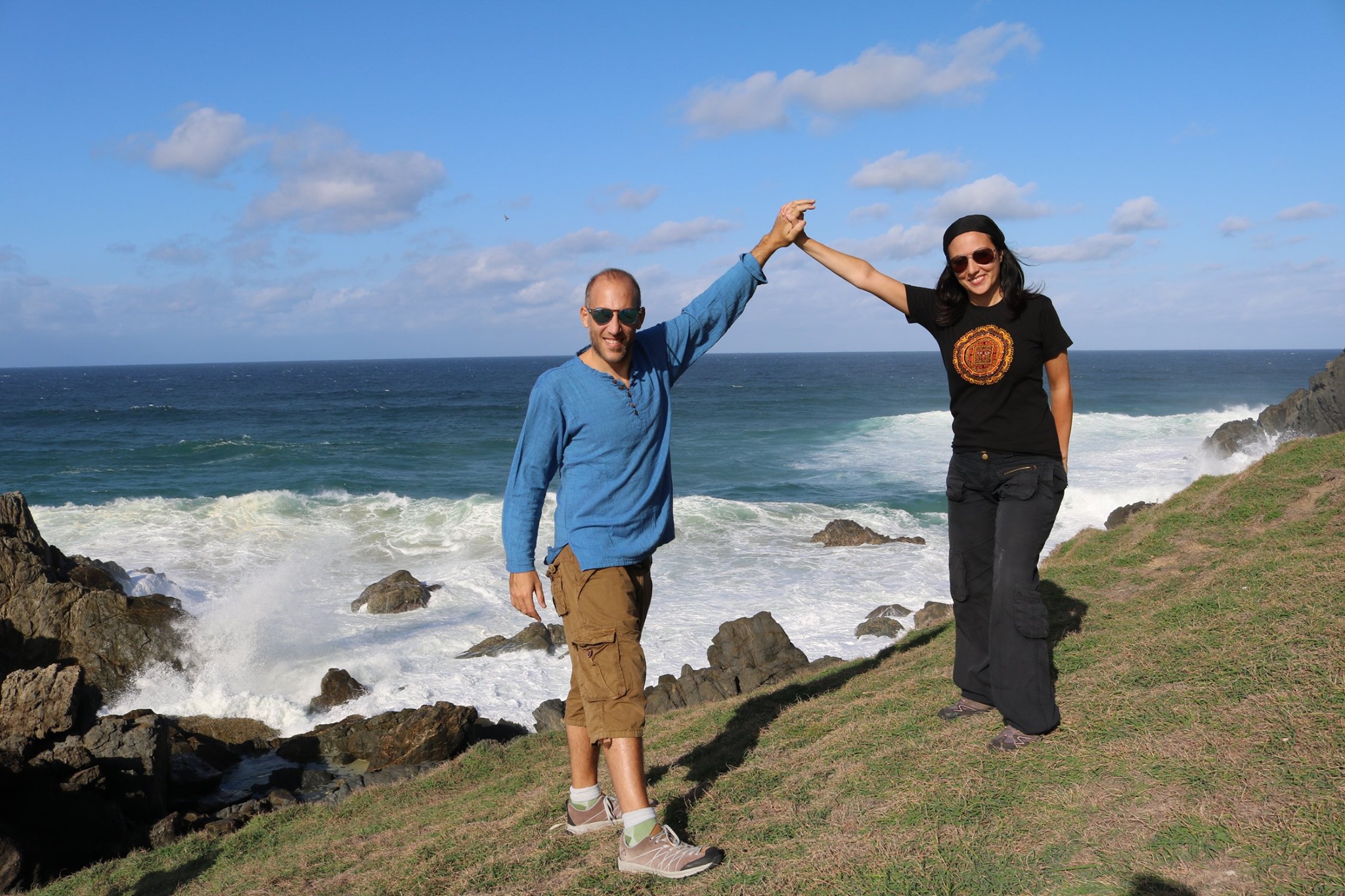
We were in Byron bay, Australia, the day before carrying out one of the most incredible interviews we have ever had. In the moment we took the picture, we had an amazing vibe, we realized we were in the farest place we had ever been, and we wanted to celebrate it with that picture.
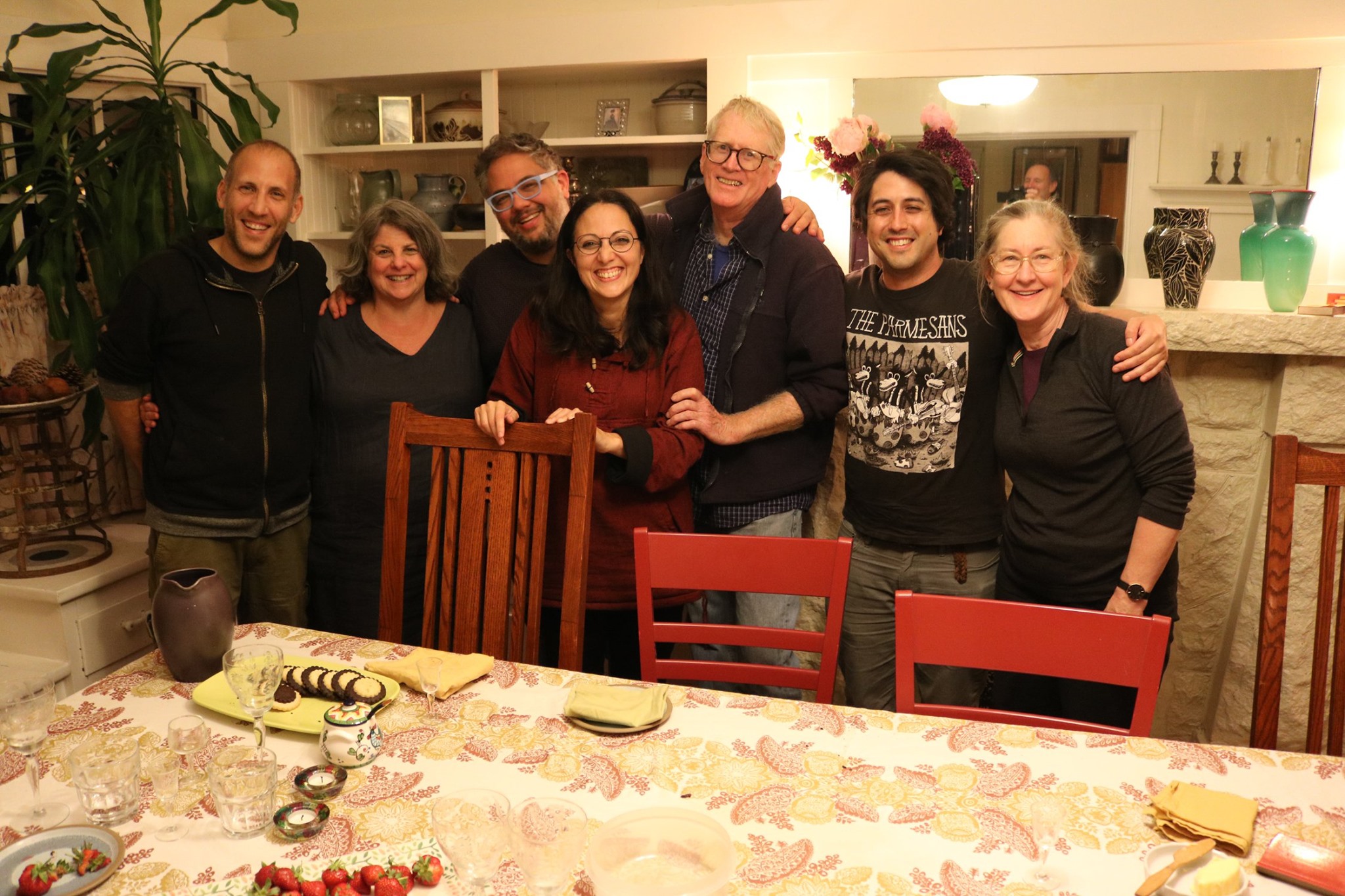
It was the most unusual FG we carried out. As members at the Cheeseboard were always extremely busy, they organized a FG dinner. We enjoyed a lot, so much fun!
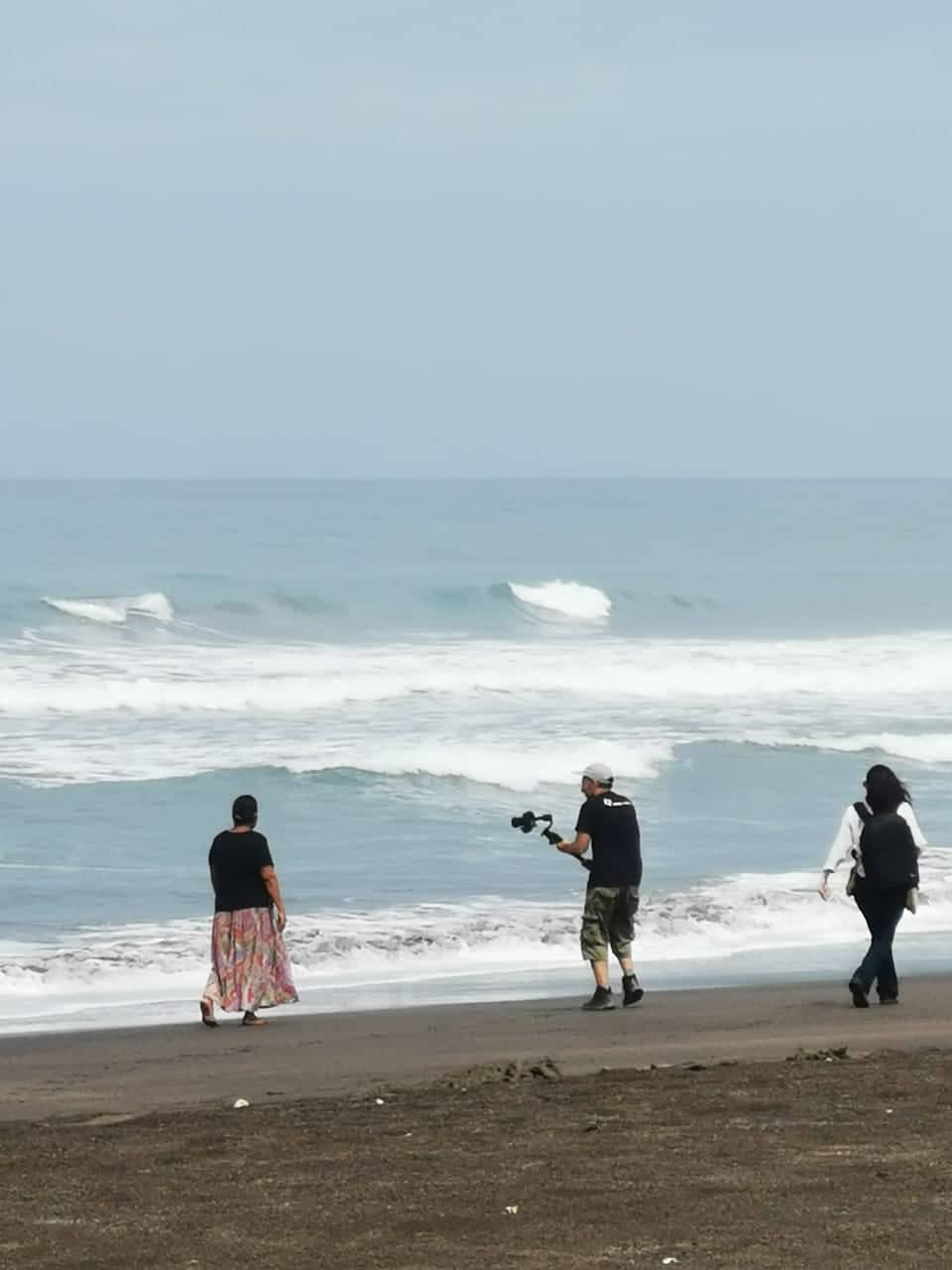
Costa Rica is an astonishing place for the beauty of its nature and people. In that moment we were filming in a fantastic wild beach were turtles use to make their nests and the lady we were filming is their protector. Just amazing :)
Discover the documentaries and read more about their adventure on their blog!
